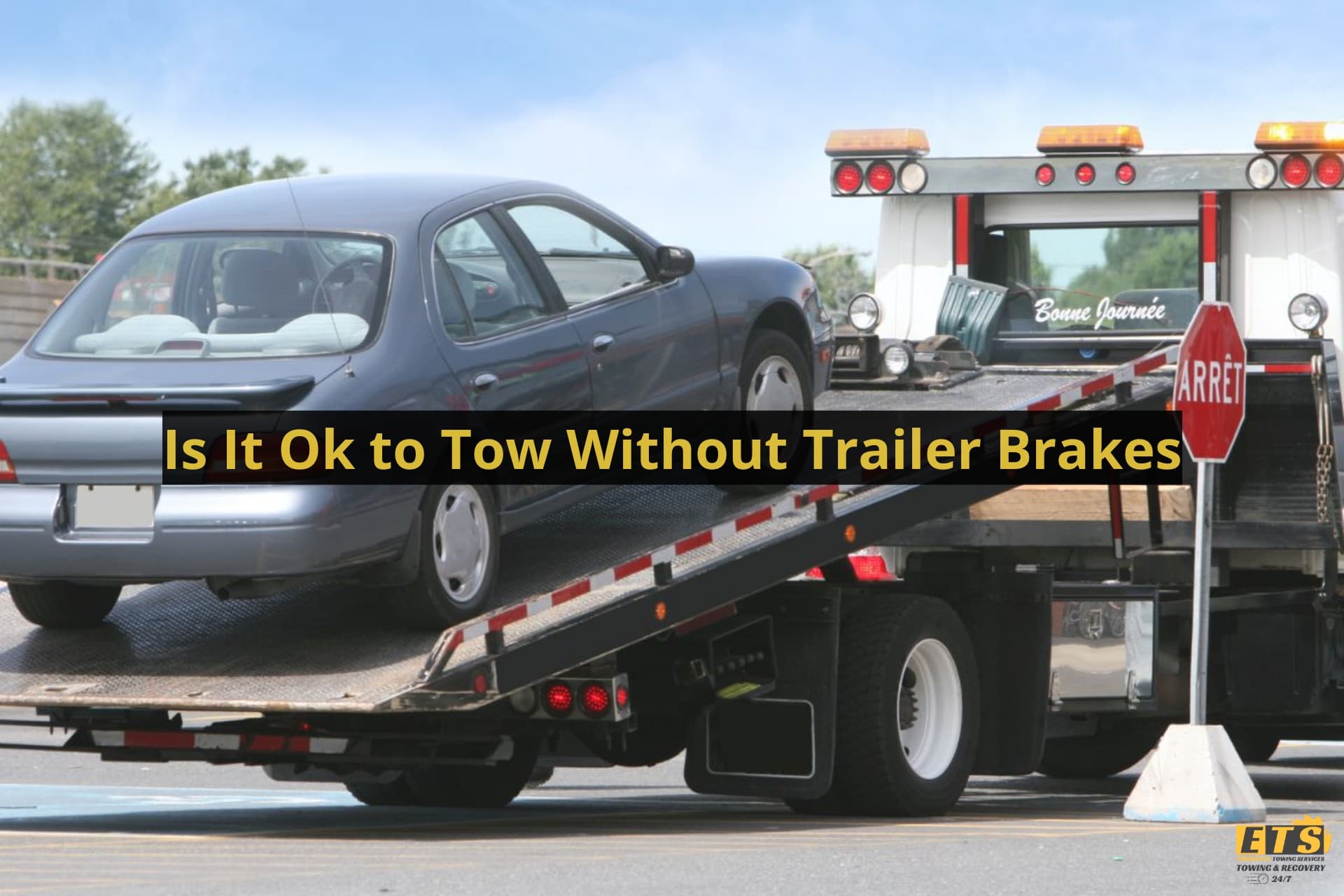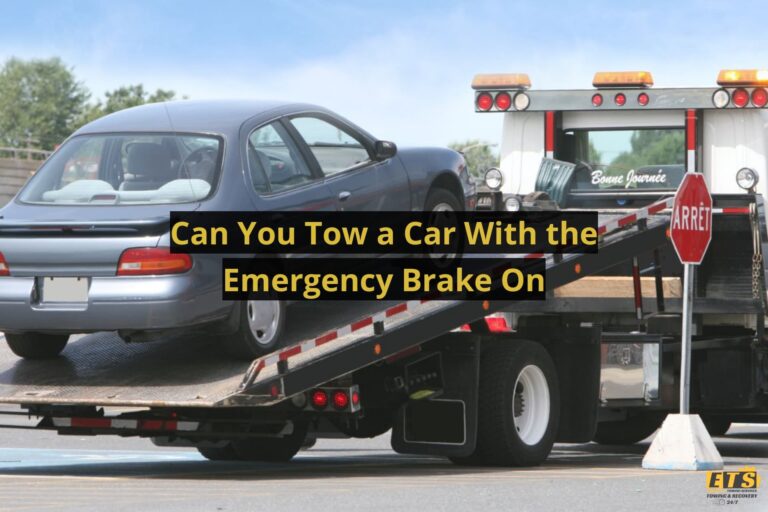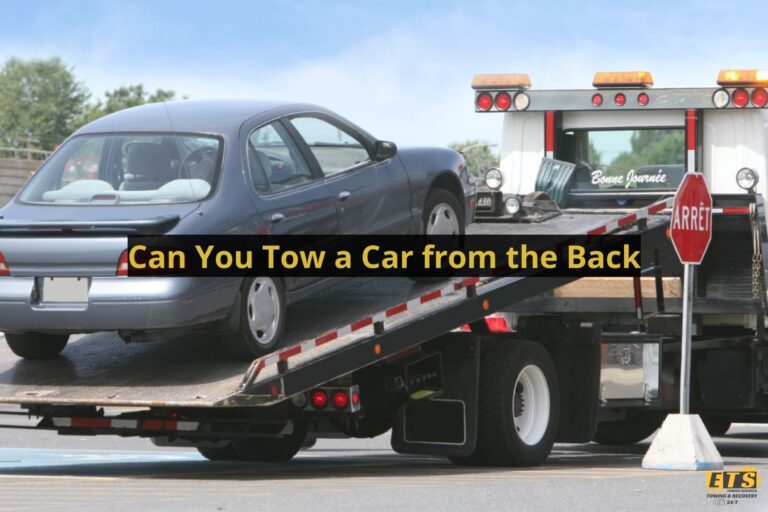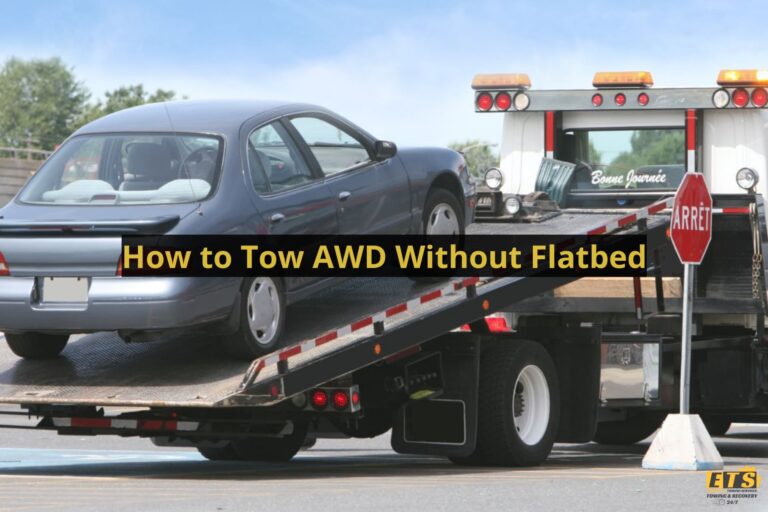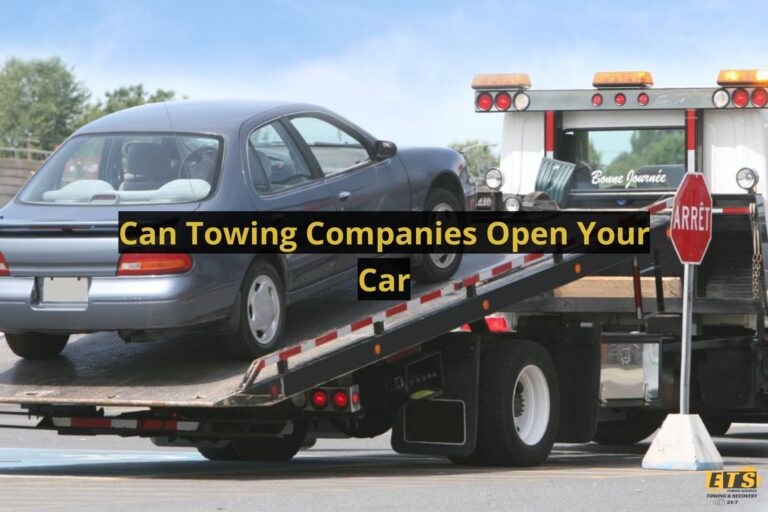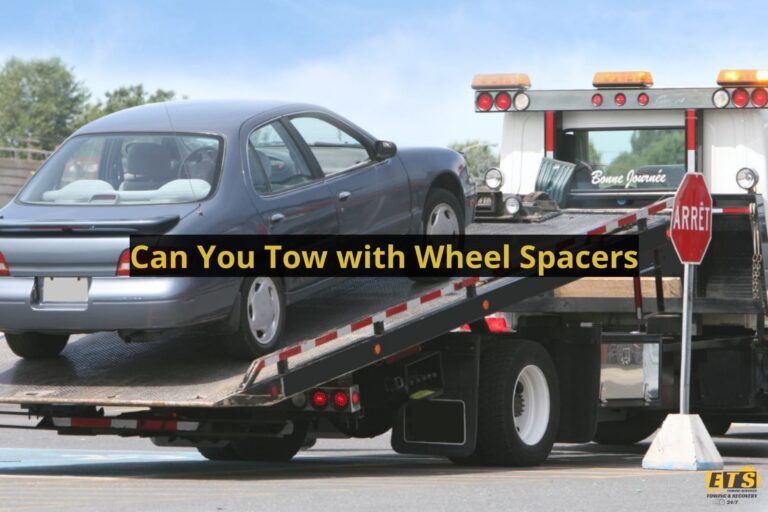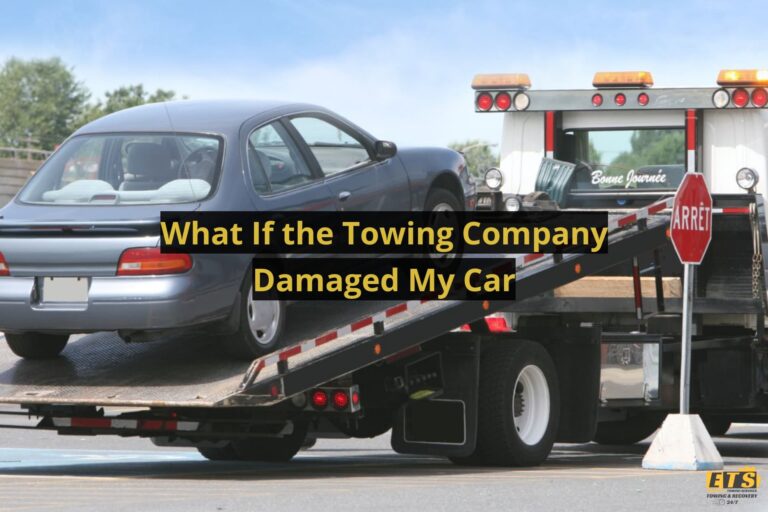Is It Ok To Tow Without Trailer Brakes
The information presented in this article is provided for general informational purposes only, and may not reflect the current laws or legal developments. This article does not constitute legal advice, and the reader should not act on the information contained in this article without first seeking professional counsel. We make no guarantees about the accuracy, completeness, or adequacy of the information contained in this article. The reader assumes all risks and liabilities associated with any actions taken as a result of reading this article. To obtain legal advice on your specific matter, please contact a qualified legal professional.
Have you ever wondered whether it’s safe to tow without trailer brakes? Perhaps you’ve heard conflicting opinions from friends or family members, or maybe you’re simply unsure of the laws and regulations in your state. Whatever the case may be, it’s important to understand the pros and cons of towing with and without trailer brakes before making a decision.
Some people believe that trailers under a certain weight can be towed safely without brakes, while others argue that all trailers should have some form of braking system. So, what is the truth?
In this article, we’ll explore the facts about trailer brakes and help you make an informed decision about towing safety. From understanding state laws to considering factors like weight distribution and maintenance, we’ll cover everything you need to know before hitting the road with your trailer in tow.
Understanding Trailer Brakes
You’ll feel more in control and safer when cruising down the highway with your trailer if you have functioning brakes that help slow it down.
There are two main types of trailer brakes: electric and hydraulic. Electric brakes require a brake controller installation, which is an electronic device that helps apply the brakes on your trailer at the same time as your tow vehicle’s brakes.
Hydraulic brakes, on the other hand, use fluid pressure from your tow vehicle’s braking system to activate the trailer’s brakes. Electric trailer brakes are commonly used because they can be easily installed by a professional or even by yourself with some knowledge of electrical wiring.
The brake controller sends signals from your tow vehicle to activate the electric-powered magnets inside each wheel hub assembly of your trailer. This creates friction between the brake pads and rotors, causing them to slow down and ultimately stop. Hydraulic trailer brakes are more commonly found in larger trailers like horse trailers or fifth-wheel campers.
They work by applying hydraulic pressure from your tow vehicle’s braking system onto a master cylinder located on the front part of the trailer tongue. From there, this pressure is distributed through lines to each wheel hub assembly where it activates a set of small pistons that engage with their respective rotors to create stopping power for your entire rig.
Make sure you understand what type of brake system you have before hitting the road without proper braking equipment.
The Pros of Towing with Trailer Brakes
The benefits of using trailer brakes are immense, from the added safety and control to the peace of mind that comes with knowing your load isn’t going anywhere. With a brake controller installed in your vehicle and properly adjusted to match your trailer’s weight, you can easily activate the brakes on your trailer when needed. This means that you have more stopping power, reduced risk of jackknifing or fishtailing, and better overall control of your towing setup.
Here are three reasons why using trailer brakes is highly recommended when towing:
- Improved Safety: Trailer brakes can help reduce stopping distance by up to 50% and prevent dangerous situations such as swaying or skidding.
- Reduced Wear and Tear: Without trailer brakes, your vehicle’s braking system will be forced to work harder than it should, leading to faster wear and tear on brake pads and rotors.
- Legal Requirements: In many states, it’s required by law to have working trailer brakes if you exceed a certain towing capacity.
In short, using trailer brakes is crucial for safe and efficient towing. Not only does it provide added safety measures, but it also saves you money in the long run by reducing wear on your vehicle’s braking system. So before hitting the road with a heavy load behind you, make sure you have a properly functioning brake controller installed in your vehicle!
The Cons of Towing without Trailer Brakes
If you’re considering towing without trailer brakes, it’s important to be aware of the potential risks.
One major con is the increased stopping distance when braking, which can lead to accidents.
Additionally, without trailer brakes, you may experience reduced control and stability while driving, especially in hazardous conditions such as rain or snow.
Ultimately, choosing not to use trailer brakes can put yourself and others on the road at a higher risk for accidents and should be avoided whenever possible.
Increased Stopping Distance
You’re risking your safety and the safety of others on the road by not having proper braking capabilities when towing. Don’t underestimate the importance of being able to stop quickly in emergency situations.
One of the biggest risks of not having trailer brakes is an increased stopping distance. Without trailer brakes, you’ll need to rely solely on your vehicle’s brakes to bring both your car and the trailer to a stop.
The problem with relying only on your vehicle’s brakes is that it may not have enough braking capacity for both vehicles. This can lead to longer stopping distances and potentially dangerous situations, especially if you need to make a sudden stop or encounter unexpected obstacles on the road.
By adding trailer brakes, you distribute the braking power between both vehicles which significantly reduces stopping distances and increases overall safety while towing.
Reduced Control and Stability
When you’re hauling a heavy load, it’s easy to lose your grip and spin out of control, putting yourself and nearby drivers in danger. That’s why it’s crucial to have proper braking mechanisms in place.
Without trailer brakes, the weight of your cargo can push against your vehicle, causing reduced stability and making it harder to control on the road. This is especially true when driving at high speeds or going downhill. Reduced stability can also lead to tire blowouts or other mechanical failures if the weight of the load is not properly distributed.
In addition, without trailer brakes, your vehicle’s braking efficiency will be severely decreased. This means that in an emergency situation where you need to stop suddenly, you may not be able to do so in time, resulting in a serious accident. It’s always better to err on the side of caution and invest in a good set of trailer brakes before towing any heavy loads.
Higher Risk of Accidents
You don’t want to be at a higher risk of accidents when hauling a heavy load, so it’s crucial to have proper braking mechanisms in place.
Trailers with a tow vehicle capacity of over 1,500 pounds must have brakes installed on all wheels, and failure to do so can result in serious consequences. Without trailer brakes, your stopping distance will increase significantly, putting you and others on the road in danger.
Even if your tow vehicle has emergency braking techniques such as anti-lock brakes (ABS), they may not be enough to stop both the towing vehicle and the trailer safely. In situations where you need to make a sudden stop or avoid an obstacle, having trailer brakes can mean the difference between life and death.
Don’t take chances when it comes to safety – always ensure that your trailers are equipped with functioning braking systems before hitting the road.
State Laws and Regulations
Make sure to check your state’s laws and regulations regarding towing, as they may require certain equipment or safety measures.
State requirements for trailer brakes vary depending on the weight of the trailer being towed. For example, some states require brakes on trailers weighing over 1,500 pounds while others may set the limit at 3,000 pounds or more.
If you’re caught towing a heavy trailer without proper braking equipment, and it’s illegal in your state, you could face significant fines and penalties. Moreover, if an accident occurs due to inadequate braking force during sudden stops or downhill descents, you could be held liable for any damages caused by your negligence.
It’s essential to prioritize safety when towing any load on public roads. Always ensure that your vehicle is equipped with the necessary brakes and safety features required by law in your state.
By taking these steps, you can protect yourself from liability concerns while minimizing the risk of accidents caused by insufficient stopping power while towing heavy loads.
Factors to Consider
Now that you have learned about state laws and regulations regarding trailer brakes, let’s dive into some important considerations and safety measures to keep in mind when towing without them.
Firstly, it is crucial to consider the weight of your trailer and the load you are carrying. If your trailer weighs more than 1,500 pounds, it is highly recommended that you use trailer brakes. However, even if your trailer falls under this weight limit, you should still take into account the weight distribution of your load. A heavy load concentrated at one end of the trailer can cause dangerous swaying and instability on the road.
Secondly, think about the type of vehicle you will be using for towing. Some vehicles may not be equipped with a brake controller or may not have enough power to handle additional braking force from a loaded trailer. It is essential to check for compatibility before attempting to tow without brakes.
To help further understand these factors and their importance when towing without brakes, refer to this table:
| Factors to Consider | Importance |
|---|---|
| Weight of Trailer | High |
| Weight Distribution | High |
| Type of Vehicle | Medium |
By keeping these factors in mind and taking necessary precautions such as driving slower and leaving extra distance between other vehicles on the road, it is possible to safely tow without trailer brakes. Always prioritize safety over convenience when making decisions related to towing.
Installation and Maintenance
Choosing the right trailer brakes is essential for safe towing. Make sure to consider the weight of your vehicle and trailer when making your decision.
Proper installation and wiring are also crucial to ensure that the brakes function correctly, so make sure you follow the manufacturer’s instructions carefully.
Lastly, regular maintenance and inspection will not only keep your brakes in good condition but also give you peace of mind while on the road.
Choosing the Right Trailer Brakes
Ensuring your trailer has the appropriate braking system is crucial for safe and efficient towing, so it’s important to select the right type of brakes. There are three main types of trailer brakes: surge brakes, electric brakes, and hydraulic disc brakes. Each type has its own advantages and disadvantages, so you should consider your specific needs before making a decision.
Here are some points to keep in mind when choosing the right type of trailer brake:
- Surge brakes are easy to install and require minimal maintenance.
- Electric brakes provide more control over stopping power and can be adjusted for different loads.
- Hydraulic disc brakes offer superior stopping power but require a higher initial investment.
- Brake controller installation is necessary for electric or hydraulic disc brakes, so make sure your vehicle is equipped with one or purchase one separately.
Proper Installation and Wiring
It’s crucial to properly install and wire your trailer brakes to ensure the safety of yourself and others on the road.
Before installing, make sure you have the right wiring requirements for your specific brake system. Most electric trailer brakes require a minimum of 10-gauge wiring from the tow vehicle to the trailer, while hydraulic brakes may require larger wires. It’s important to follow these guidelines as it can affect how well your brakes work.
Once you’ve determined the proper wiring requirements for your brake system, it’s time to install them correctly. Follow all safety standards and instructions provided by the manufacturer carefully.
Make sure all connections are secure and clean before testing out your new brakes on a flat surface with no traffic around. Proper installation will not only keep you safe but also prevent damage or wear and tear on both your vehicle and trailer over time.
Regular Maintenance and Inspection
Proper installation and wiring may ensure that your trailer brakes work effectively, but regular maintenance and inspection are just as important. Even the best-installed brake system will fail if it’s not well-maintained.
To avoid accidents on the road, you should regularly perform checks on your trailer braking system. Here are some essential maintenance tips to keep in mind:
- Check brake pads for wear and tear
- Inspect brake lines for cracks or leaks
- Ensure proper brake fluid levels
- Test your brakes before every trip
By following these steps, you can help prevent any potential problems with your trailer’s braking system. Remember, towing without properly functioning brakes can be dangerous for both you and other drivers on the road.
Safety Tips for Towing
You definitely don’t want to take unnecessary risks when it comes to the safety of you and your fellow drivers, which is why neglecting the advice in this section would be a real shame.
Safety should always come first when towing, especially if you’re carrying a heavy load. One of the essential things to keep in mind is the towing weight limit of your vehicle and trailer combination. If you exceed this limit, it can cause severe damage to your car’s engine, transmission, and brakes.
Another crucial factor that affects towing safety is braking distance. Keep in mind that an increase in towing weight means there will be an increase in stopping distance as well. It’s vital to have proper brake control when pulling any kind of trailer.
With larger trailers or heavier loads, it’s even more critical to use trailer brakes instead of relying solely on your vehicle’s brakes. Trailer brakes help distribute the load between all four wheels and reduce the risk of jackknifing or losing control during sudden stops.
In conclusion, ignoring these safety tips for towing could lead to disastrous consequences for yourself and other drivers on the road. Always check your vehicle owner’s manual for recommended weights before hooking up a trailer, and keep an eye on how much weight you’re carrying at all times while driving.
Make sure you use trailer brakes if required by law or if you feel like they are necessary for safe operation based on your driving conditions. Remember that being safe while towing is not only important but also responsible behavior as a driver on public roads.
Making an Informed Decision
When making the decision to tow without trailer brakes, it’s important to weigh the pros and cons.
While saving money on equipment and installation may seem like a benefit, it’s crucial to consider the added risk of accidents or damage to your vehicle.
Consulting with experts, such as mechanics or towing professionals, can provide valuable insight into whether towing without brakes is safe for your specific situation.
Ultimately, prioritizing safety and compliance should be at the forefront of any decision regarding towing.
Weighing the Pros and Cons
Weighing the pros and cons of towing without trailer brakes can help you make an informed decision about whether it’s worth risking safety for convenience.
On the one hand, not having to install or maintain trailer brakes can save you money in the short term. Furthermore, if your vehicle is rated to tow a certain weight without brakes, then you may be legally allowed to do so in your jurisdiction.
However, there are several significant drawbacks to consider as well. Firstly, even if your vehicle meets the minimum towing capacity limitations for brakeless towing, it doesn’t mean that this is a safe option. Without trailer brakes, stopping distances will be significantly longer and harder to control – particularly in wet or slippery conditions.
Secondly, while not installing and maintaining trailer brakes may seem like a cost-effective choice at first glance, any accidents or damage caused by brake failure could end up costing you much more in repairs and legal fees down the line.
Ultimately, only you can decide whether the risks associated with brakeless towing are worth taking on – but it’s essential to weigh all of these factors carefully before making your final choice.
Consulting with Experts
It’s time to seek the guidance of professionals who can provide valuable insights and advice on whether or not you should consider alternative options for safer and more efficient towing.
Expert opinions are crucial in making informed decisions regarding your vehicle’s safety, especially when it comes to towing without trailer brakes.
Consult with experts in the field, such as mechanics, auto manufacturers, and industry standards organizations. Here are some reasons why consulting with experts is important before deciding whether or not to tow without trailer brakes:
- Mechanics can inspect your vehicle’s braking system to determine if it is capable of safely towing a load without trailer brakes.
- Auto manufacturers may have specific guidelines on how much weight your vehicle can handle based on its make and model.
- Industry standards organizations like the National Highway Traffic Safety Administration (NHTSA) may have regulations that apply to your situation.
- Consulting with experts can give you peace of mind knowing that you have made an informed decision about the safety of yourself and others on the road.
Prioritizing Safety and Compliance
Ensuring safety and compliance should be the foremost concern when deciding whether or not to tow a load without trailer brakes. It’s essential to follow safety guidelines and towing regulations to prevent accidents, injuries, and traffic violations. When you prioritize safety, you protect yourself, your cargo, and other road users.
To better understand the importance of having trailer brakes, let’s take a look at this table:
| Towing Weight | Trailer Brakes Required? |
|---|---|
| Under 1,500 lbs | Not required but recommended |
| 1,501 – 3,000 lbs | Required |
| 3,001 – 5,000 lbs | Required if state law mandates |
| Over 5,000 lbs | Always required |
As you can see in the chart above, trailer brakes are mandatory for loads over certain weights. However, even if your load is under these limits or state laws don’t require it doesn’t mean that it’s safe to tow without them. It’s always best to err on the side of caution and equip your vehicle with trailer brakes. Remember that prioritizing safety isn’t only about following regulations but also about keeping yourself and others out of harm’s way.
Conclusion
So, is it okay to tow without trailer brakes? Well, the answer really depends on your personal situation and preferences.
However, it’s important to understand the benefits of using trailer brakes and the potential risks of not having them.
In short, towing with trailer brakes is like wearing a seatbelt while driving – it may not be required by law in all situations, but it can greatly improve your safety and peace of mind on the road.
Ultimately, it’s up to you to weigh the factors and make an informed decision that works best for your specific needs.
Whatever you decide, just remember to prioritize safety above all else when towing.

